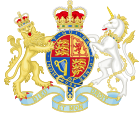- Concessionary Bus Travel Act 2007
-
The Concessionary Bus Travel Act 2007[1] 
Parliament of the United KingdomLong title An Act to make provision about travel concessions; and for connected purposes. Statute book chapter 2007 c. 29 Introduced by Lord Davies Captain of the Yeomen of the Guard and Government Deputy Chief Whip, 27 November 2006[2] Territorial extent England and Wales[3] Dates Royal Assent 19 July 2007 Commencement For certain preliminary planning and guidance purposes: 17th October 2007. In full: 1st April 2008[4] Repeal date — Other legislation Amendments — Related legislation — Repealing legislation — Status: Not fully in force History of passage through Parliament Text of statute as originally enacted Revised text of statute as amended The Concessionary Bus Travel Act 2007 is an Act of the Parliament of the United Kingdom which entitles all English people who are either disabled or over the age of 60 to free travel on local buses at off-peak times anywhere within England (transport being a devolved matter and therefore within the purview of the Scottish Parliament, Welsh Assembly and Northern Ireland Assembly); previously, free travel had only been available within the recipient's local authority area.[5]
Contents
Funding
Under the scheme, bus companies are compensated by local authorities for carrying passholders, and the authorities in turn receive funding from central Government to offset the cost, in the form of a special grant under s.88B of the Local Government Finance Act 1988[6], for which a total of £212 million has been allocated. This is distributed using a funding formula on the basis of four factors (eligible population, bus patronage, overnight visitors and retail floor space),[7] in the following proportions:
Proportion Eligible population 5.1% Bus patronage 41% Overnight visitors 15.4% Retail floor space 38.5% The funding allocated by Government was criticised by some[8][9] as inadequate, and some local authorities anticipate budget shortfalls as a result.[10] The government defended its decision not to compensate local authorities on the basis of actual costs incurred on the grounds that "such an approach would mean that the central government would hold all the financial risks but have no commensurate control of how the risks are managed".[7]
Passage through Parliament
As is common for uncontroversial measures, the Bill was introduced in the House of Lords, where it received cross-party support.[11] It received third reading from the Lords on 5 February 2006, and from the Commons on 28 June, with minor amendments, including one allowing the Government to make payments from public funds to fund the scheme, since money bills cannot be started in the Lords. These amendments were agreed to on 5 July, and the Bill received Royal Assent on 19 July. Under the commencement order, the Bill entered into force to allow the making of some regulations by the Secretary of State, and for some other preliminary purposes, on 17 October 2007, and in full on 1 April 2008.
References
- ^ The citation of this Act by this short title is authorised by section 16 of this Act.
- ^ HL Deb, 27 November 2007 vol 687 c550
- ^ S.15
- ^ The Concessionary Bus Travel Act 2007 (Commencement and Transitional Provisions) Order 2007. Retrieved 2007-03-14.
- ^ Department for Transport (2007-08-23). "Concessionary Bus Travel Act 2007". http://www.dft.gov.uk/pgr/regional/buses/concessionary/concessionarybustravelbill/. Retrieved 2008-03-14.
- ^ Department for Transport (PDF). Local Authority special grant funding for the 2008 national bus concession in England. http://www.dft.gov.uk/consultations/closed/consulnattravelconcess08/cpdfconsulnatbustravel08.pdf. Retrieved 2008-03-14.[dead link]
- ^ a b Department for Transport (PDF). Concessionary Fares 2008/9 Special Grant. http://www.dft.gov.uk/pgr/regional/buses/concessionary/nbcfaddtngrants/concessgrantfaqs.pdf. Retrieved 2008-03-14.[dead link]
- ^ HC Deb, 14 May 2007 c401
- ^ HC Deb, 14 May 2007 c414
- ^ (DOC) Tyne and Wear Passenger Transport Authority. 2006. http://www.newcastle.gov.uk/cab2005.nsf/allbykey/150B74EB652043FA802571230036B9DE/$FILE/PTA%20cuts%20paper.doc. Retrieved 2008-03-14.
- ^ HL Deb, 12 December 2006 vol 687 c1477 , HL Deb, 5 February 2007 vol 689 c480
External links
- The Concessionary Bus Travel Act 2007, as amended from the National Archives.
- The Concessionary Bus Travel Act 2007, as originally enacted from the National Archives.
- Explanatory notes to the Concessionary Bus Travel Act 2007.
United Kingdom legislation Pre-Parliamentary legislation Acts of Parliament by states preceding
the Kingdom of Great BritainActs of the Parliament of England to 1483 · 1485–1601 · 1603–1641 · Interregnum (1642–1660) · 1660–1699 · 1700–1706
Acts of the Parliament of Scotland
Acts of the Parliament of Ireland to 1700 · 1701–1800Acts of Parliament of the
Kingdom of Great Britain1707–1719 · 1720–1739 · 1740–1759 · 1760–1779 · 1780–1800
Acts of Parliament of the United Kingdom of
Great Britain and Ireland and the United
Kingdom of Great Britain and Northern IrelandChurch of England Measures Legislation of devolved institutions Acts of the Scottish Parliament
Acts and Measures of the Welsh Assembly
Acts of the Northern Ireland Assembly / of the Northern Ireland Parliament
Orders in Council for Northern IrelandSecondary legislation Categories:- United Kingdom Acts of Parliament 2007
- English laws
- 2007 in transport
Wikimedia Foundation. 2010.

